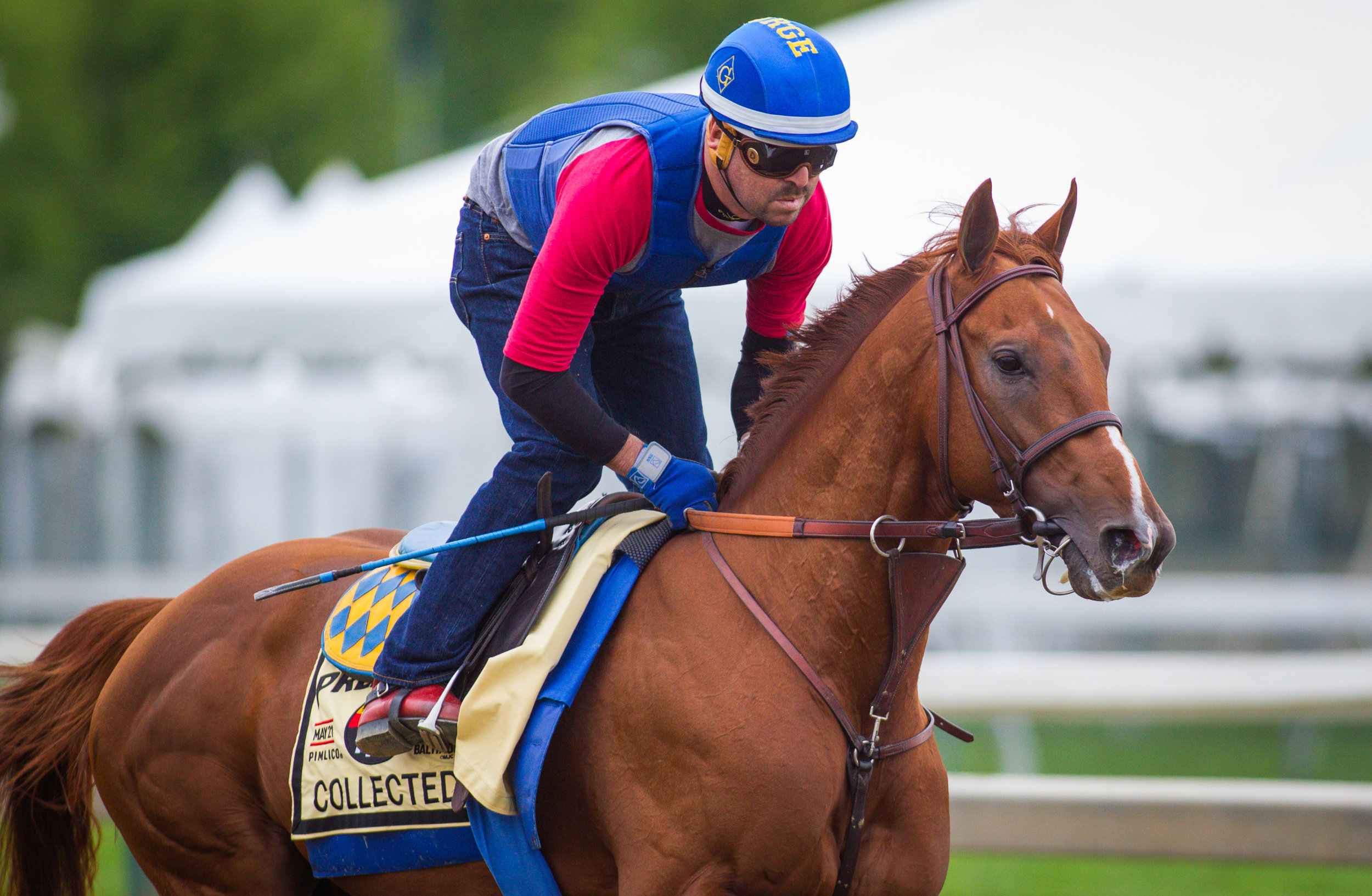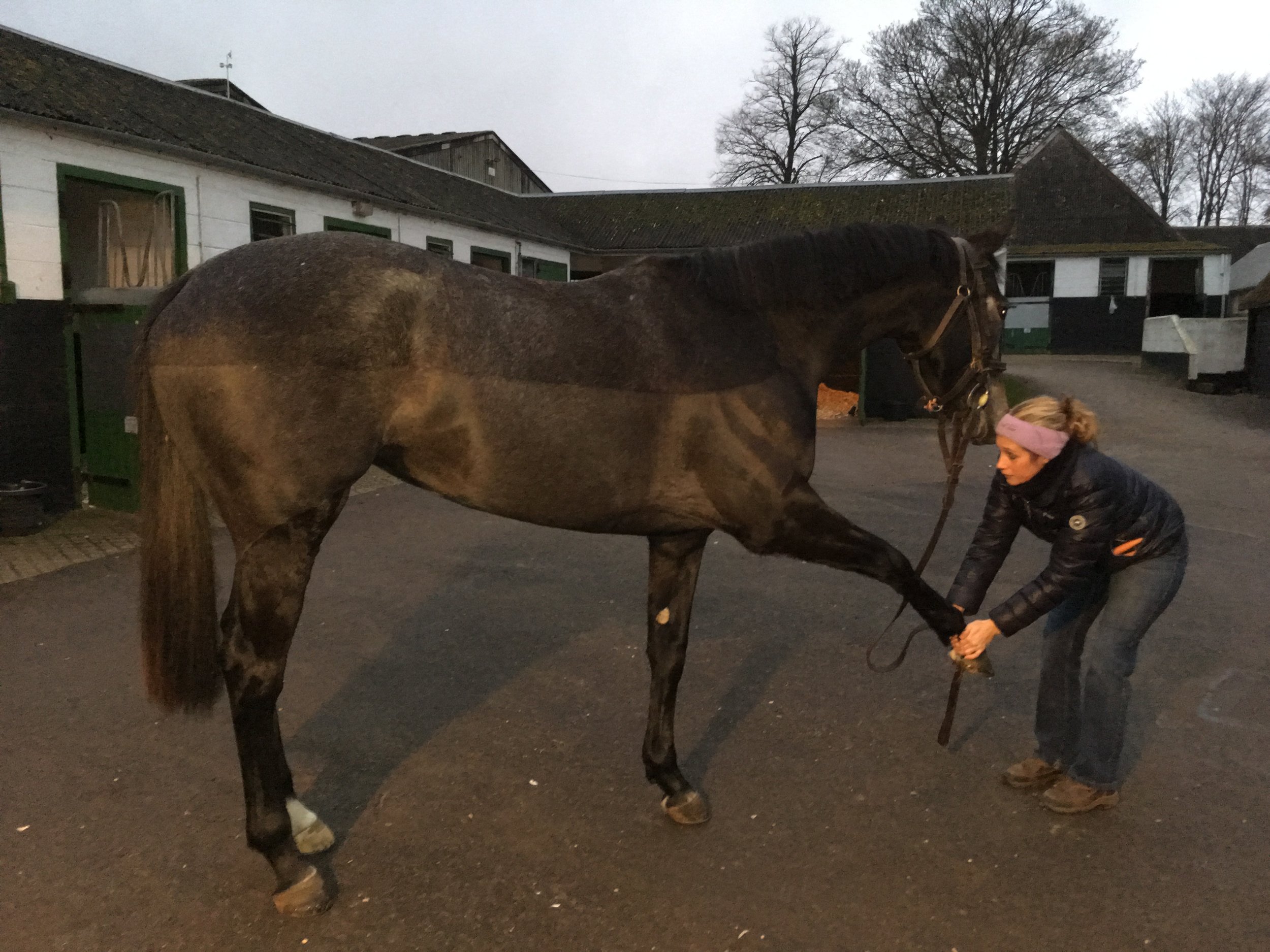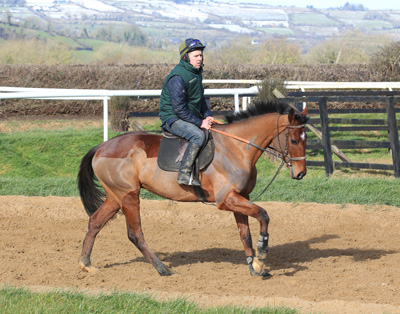Back to School: Dressage as a Training Tool
Published in European Trainer, January - March 2018, issue 60.
To those not familiar with the idea, or indeed not familiar with the intricacies of managing the mind and body of the young thoroughbred, it might seem peculiar to take an animal bred for generations and engineered over centuries to display nothing short of super equine speeds, gargantuan leaps, and feats of middle-distance endurance, and to then turn it to the steadiest, most controlled, poised equestrian discipline. As mad a thing to do as this might seem at the end of such a horse’s career, to delve into it a day or so each week, or perhaps to go for an out-of-season dressage “staycation,” could seem just plain bizarre.
So why are we hearing more and more about the speedy souls that inhabit the world of horseracing sneaking out of the realms of the snaffle bit, flat saddle, jeans, and Cuban heel to indulge jodhpurs, curb chains, extremely high cantles, and Spanish topped-boots?
Well, it might not be as bizarre as it sounds. Three generations ago it was hard to find a trainer who hadn’t enjoyed some formal equitation training, most likely through the armed forces, but that was also an age where there was still some form of reliance upon the horse for anything as fundamental as travel, so there was simply a greater and more widespread understanding of the horse across the board. Many would have also known how to drive as well as ride simply from necessity. Later we will speak to one of the very few young trainers to have actively pursued driving, itself now a sport with an element of dressage.
Fewer and fewer trainers with each passing generation have a formal education in the fundamentals of classical riding, and it is perhaps only natural that in the face of such a decline there will be those that look to find an advantage in redressing this balance. Of course, there are always trainers who come to horseracing from more conventionally classical disciplines, many of them hugely successful regardless of code, country, or surface, and these exceptions prove as interesting as those who seek the help of specialist dressage instructors or riders to enhance the complex set of skills that have led to their success...
To read more - Buy this issue online here
Or Subscribe!
Gallery




